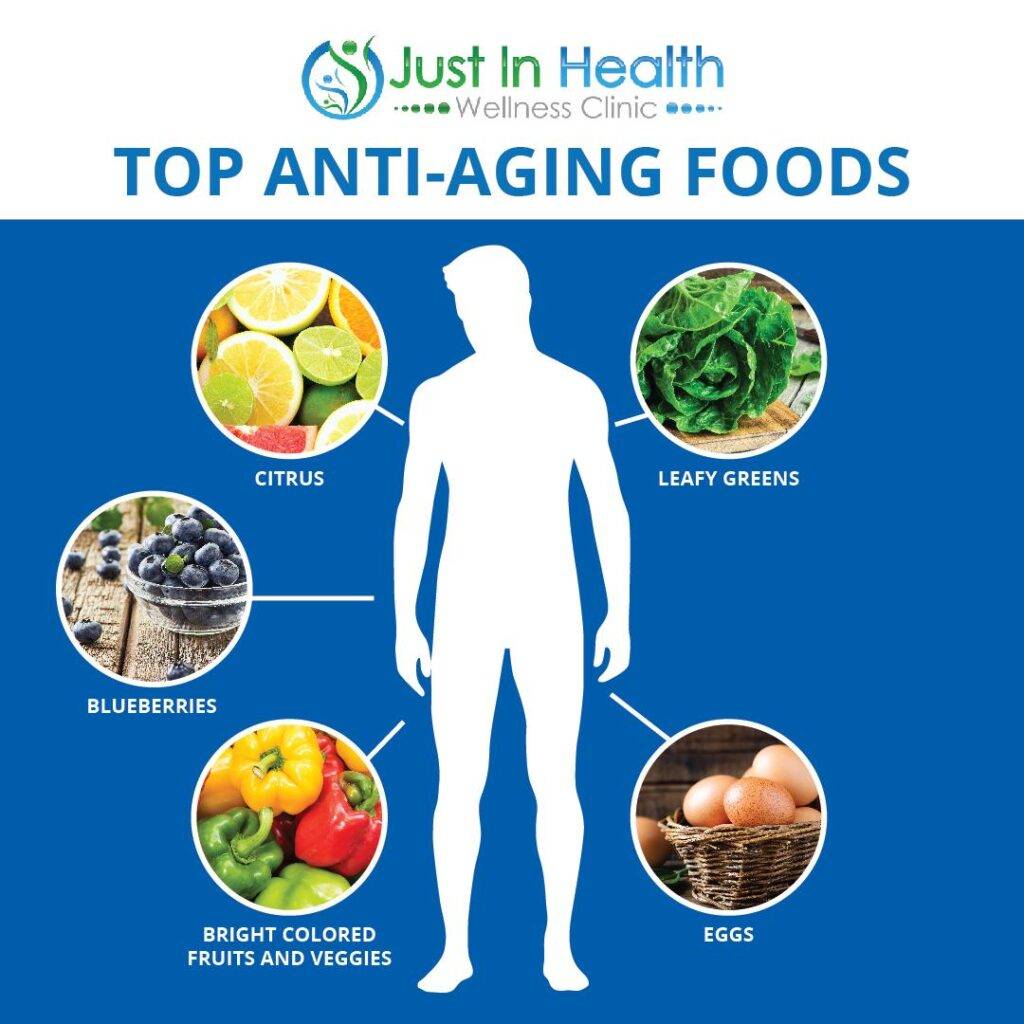As the quest for eternal youth continues to captivate the minds of many, the spotlight is increasingly shifting from miracle creams and treatments to the very essence of what we consume: our food. What we eat not only fuels our bodies but also plays a pivotal role in how we age. In a world where nutrition and wellness are growing more intertwined, understanding the best anti-aging foods can empower us to nourish our skin, boost our vitality, and enhance our overall well-being. In this article, we will explore a cornucopia of foods that have been celebrated for their anti-aging properties, uncovering the science behind their benefits and how you can incorporate them into your daily diet. Join us on this culinary journey towards a healthier, more vibrant you.
Table of Contents
- Understanding the Science of Aging and Nutrition
- Key Nutrients That Combat Aging Effects
- Fruits that Promote Youthful Skin and Vitality
- The Power of Vegetables in Anti-Aging Regimens
- Healthy Fats and Their Role in Skin Health
- Whole Grains: The secret to Sustained Energy and Longevity
- The Importance of Hydration in anti-Aging Practices
- Herbs and Spices That Enhance Beauty from Within
- Superfoods: Nutrient-Packed Choices for Skin Rejuvenation
- Balanced Diets for a Timeless Glow
- Lifestyle Tips to Maximize the Benefits of Anti-Aging Foods
- Q&A
- Closing Remarks
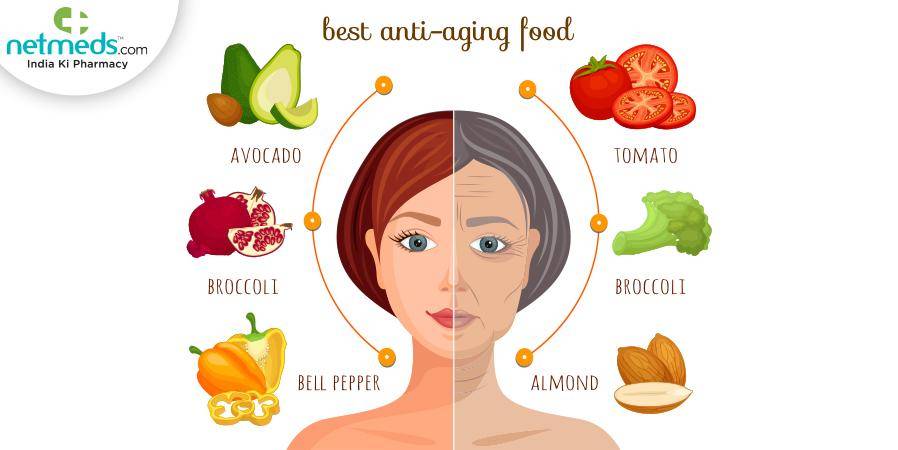
Understanding the Science of Aging and Nutrition
Aging is a complex biological process influenced by various intrinsic and extrinsic factors. At its core, aging is associated with cellular damage, accumulation of oxidative stress, and inflammation, all of which can be mitigated through proper nutrition. The right foods not only supply essential nutrients but also possess properties that combat oxidative stress and promote cellular repair.
One of the primary markers of aging is oxidative stress, which occurs when there is an imbalance between free radicals and antioxidants in the body. Incorporating antioxidant-rich foods into your diet can definitely help neutralize these free radicals. Some powerhouse sources of antioxidants include:
- Berries – Blueberries, strawberries, and raspberries are loaded with vitamin C and polyphenols.
- Nuts - Walnuts and almonds provide vitamin E, which is vital for skin health.
- Green Vegetables – Spinach and kale are high in lutein and zeaxanthin, which protect your eyes.
Another critical element to consider is inflammation, which contributes to the aging process.Chronic inflammation can lead to a range of health issues, including heart disease and cognitive decline. Certain foods exhibit anti-inflammatory properties that can help reduce this risk. The following are considered beneficial:
- Fatty Fish – Salmon and mackerel are rich in omega-3 fatty acids, known for their anti-inflammatory effects.
- Whole Grains - Quinoa and barley offer fiber and nutrients that aid in lowering inflammation markers.
- Turmeric – Curcumin, the active component in turmeric, has powerful anti-inflammatory effects.
Moreover, maintaining muscle mass and bone health is key to aging gracefully. Nutrients like protein, calcium, and vitamin D play significant roles in muscle repair and bone strength. A table summarizing essential nutrients and their sources can illustrate the best options:
| Essential nutrient | Best food Sources |
|---|---|
| Protein | Chicken,beans,Greek yogurt |
| Calcium | Dairy products,leafy greens,fortified foods |
| Vitamin D | Fatty fish,mushrooms,fortified milk |
Lastly,hydration plays a vital role in maintaining youthful skin and overall health. As we age,our bodies may become less efficient at retaining water. It’s crucial to prioritize hydration, particularly through nutrient-dense fluids like herbal teas, fruit-infused water, and broths. Additionally, foods with high water content, such as cucumbers and watermelon, should be incorporated into daily meals to support skin elasticity and vitality.
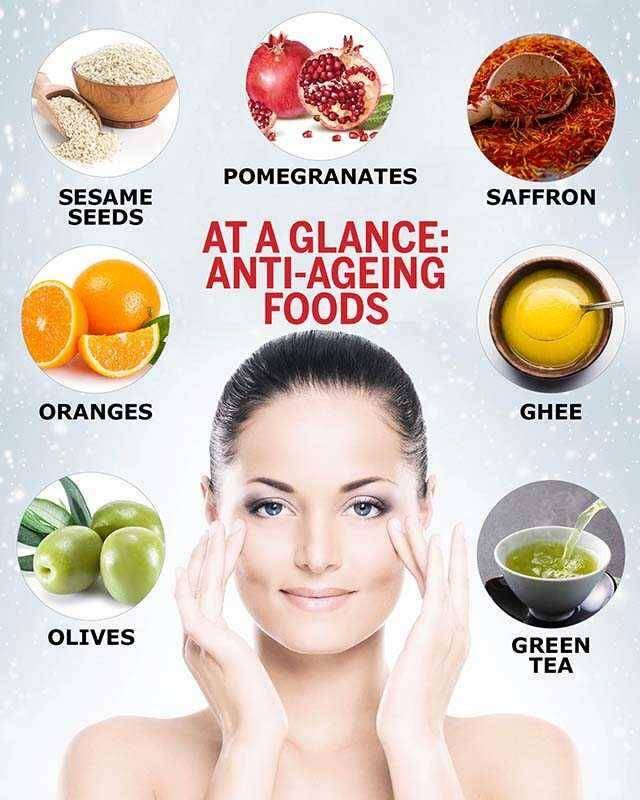
Key Nutrients That Combat Aging Effects
One of the most potent defenses against the visible signs of aging is a balanced diet rich in essential nutrients. Certain vitamins and minerals play a key role in maintaining skin elasticity, promoting cell regeneration, and combating oxidative stress. Incorporating these nutrients into your meals can definitely help ensure a youthful glow.
Vitamins C and E are crucial antioxidants that help protect the skin from damage caused by free radicals. Vitamin C,found in citrus fruits,berries,and leafy greens,aids in collagen production,which improves skin firmness. Similarly, Vitamin E, abundant in nuts, seeds, and green vegetables, helps maintain skin moisture and elasticity. Together, they form a powerful duo that supports skin health.
Omega-3 fatty acids are vital for maintaining the integrity of cell membranes, which is essential for keeping the skin hydrated and plump. Fatty fish like salmon, walnuts, and flaxseeds are excellent sources of these healthy fats. They help reduce inflammation and may even protect against skin conditions like psoriasis, effectively promoting a clear and youthful complexion.
A range of polyphenols, found in fruits, vegetables, and beverages like green tea, also contribute to anti-aging. These compounds possess remarkable antioxidant properties that can reduce the effects of UV exposure and improve skin resilience. Colorful fruits such as berries, pomegranates, and grapes are particularly rich in polyphenols and can offer your body extra protection against the aging process.
zinc and selenium are trace minerals that play crucial roles in skin health. Zinc, available in shellfish, legumes, and seeds, supports wound healing and helps maintain skin’s structural integrity. Selenium, found in Brazil nuts, eggs, and whole grains, is another essential player that may help prevent skin damage from sun exposure. Including foods rich in these minerals can lead to healthier, more resilient skin.

Fruits That Promote Youthful Skin and Vitality
In the quest for youthful skin, the natural beauty of fruits cannot be understated. Packed with vitamins, antioxidants, and hydrating properties, these gifts from nature offer a delicious way to nourish your skin from the inside out. Many fruits not only enhance your skin’s appearance but also boost your overall vitality, making them essential additions to your diet.
Berries, such as blueberries, strawberries, and blackberries, stand out in the anti-aging lineup. Rich in vitamin C and antioxidants, they combat free radicals, which are notorious for accelerating skin aging. The vibrant colors of these fruits also signal the presence of flavonoids, which improve skin elasticity and promote a youthful glow. Consider adding a handful to your morning oatmeal or smoothie for a flavorful antioxidant boost.
Another powerhouse for maintaining skin health is kiwi. This small, fuzzy fruit is a treasure trove of vitamin C and vitamin E, both of which are crucial for collagen production—a vital aspect in keeping your skin firm and supple. Kiwi’s high water content also aids hydration, ensuring your skin looks plump and radiant. Enjoy it sliced in salads or blended into refreshing beverages for a skin-loving treat.
Pomegranates are often dubbed as the “fruit of immortality” due to their potent anti-aging properties. They are loaded with polyphenols and antioxidants that protect against skin damage and aid in cell regeneration. Their seeds are not just visually appealing, they are also bursting with juice that can definitely help improve skin texture. Incorporate pomegranate juice into your diet or sprinkle the seeds over yogurt for a crunchy, nutritious snack.
Lastly, don’t overlook the humble avocado. Known for its creamy texture and rich flavor, this fruit is high in healthy fats, specifically omega-3 fatty acids, which are essential for maintaining skin moisture and elasticity. Avocados also contain lutein and zeaxanthin, which protect your skin from UV radiation.Spread some on whole-grain toast or toss it into salads for a delectable way to enhance skin vitality.
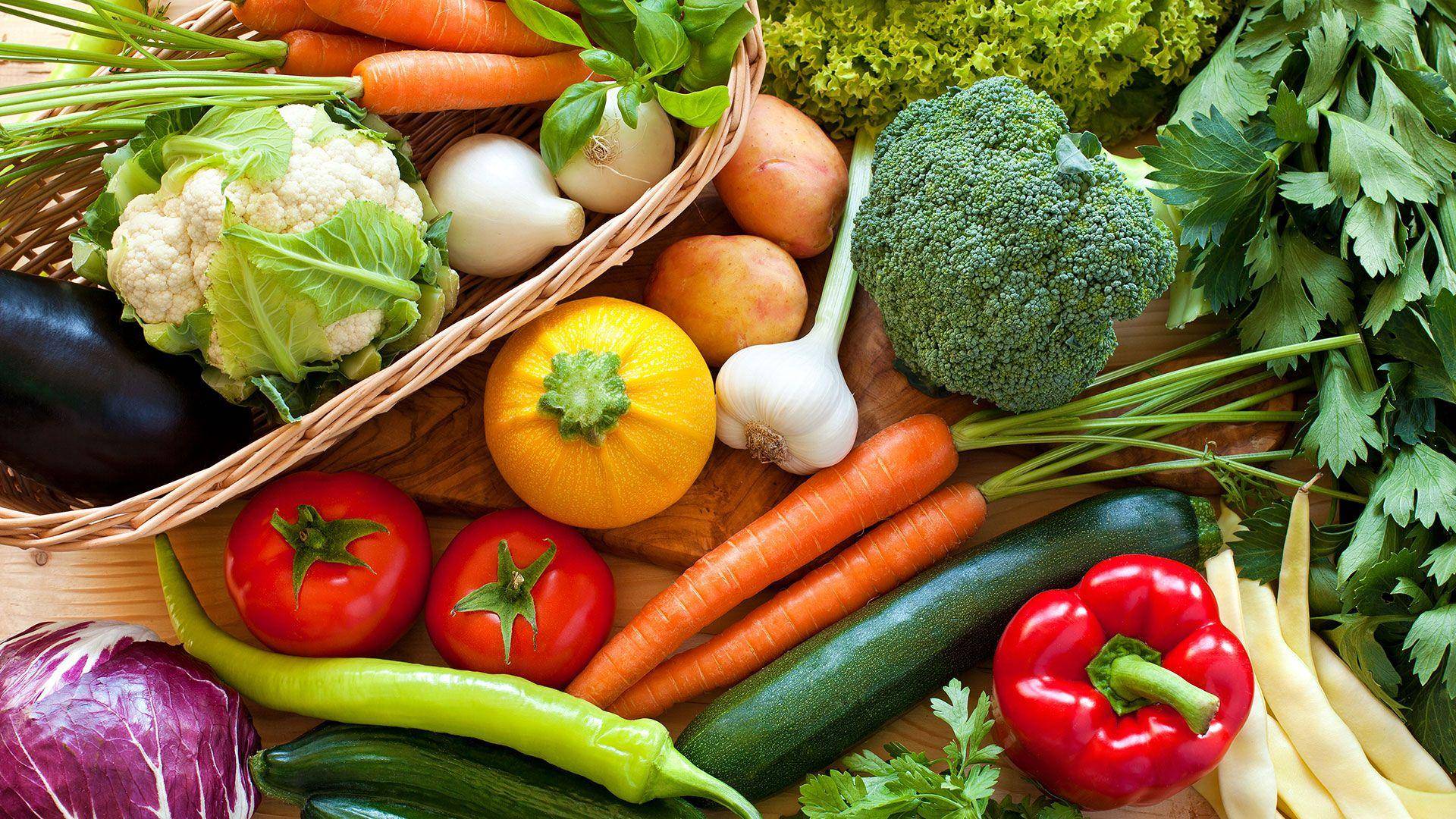
The Power of Vegetables in Anti-Aging Regimens
In the quest for lasting youthfulness, vegetables emerge as powerful allies in the fight against aging. Rich in essential nutrients and antioxidants, they harness the ability to rejuvenate our bodies at a cellular level. Incorporating an array of colorful vegetables into our diets not only enhances our physical appearance but also promotes overall health, combating age-related decline effectively.
One of the key factors contributing to the anti-aging potential of vegetables is their high content of antioxidants. These compounds play a vital role in neutralizing free radicals, which can lead to oxidative stress – a significant contributor to the aging process. Vegetables such as spinach, kale, and broccoli are particularly high in antioxidants like vitamin C and beta-carotene. By regularly consuming these nutrient-dense foods, we can definitely help maintain cellular integrity and promote skin elasticity.
Moreover, many vegetables are loaded with fiber, which is crucial for digestive health. A healthy digestive system helps in nutrient absorption and detoxification, both of which are essential for maintaining a youthful glow. Fiber-rich options like beans, carrots, and zucchini not only aid in digestion but also help in maintaining stable blood sugar levels, contributing to overall vitality. Including these vegetables in meals can assist in a balanced diet that supports long-term well-being.
Another reason to celebrate vegetables in anti-aging regimens is their abundance of anti-inflammatory properties.Chronic inflammation is linked to various age-related diseases, making it essential to reduce its impact as we age. Foods such as bell peppers, beets, and sweet potatoes are fantastic choices for combatting inflammation. Their vibrant pigments indicate potent phytonutrients that work to reduce oxidative stress and inflammation, bolstering our body’s defenses against the aging process.
To further highlight the importance of incorporating a diverse vegetable intake,consider the following table showcasing various vegetables and their anti-aging properties:
| Vegetable | Key Nutrients | Anti-Aging Benefits |
|---|---|---|
| Spinach | Vitamin K,Folate | Boosts skin hydration |
| Carrots | beta-Carotene,Fiber | Improves skin tone |
| Broccoli | Sulforaphane,Vitamins C & E | Detoxification support |
| Bell Peppers | Vitamin C,antioxidants | Enhances collagen production |
Emphasizing the inclusion of various vegetables in daily meals can transform our approach to aging gracefully. The synergy of nutrients they offer creates a solid foundation for a resilient body and youthful skin. Experimenting with different cooking methods and recipes can also ensure that eating vegetables remains enjoyable, encouraging consistent intake over time.
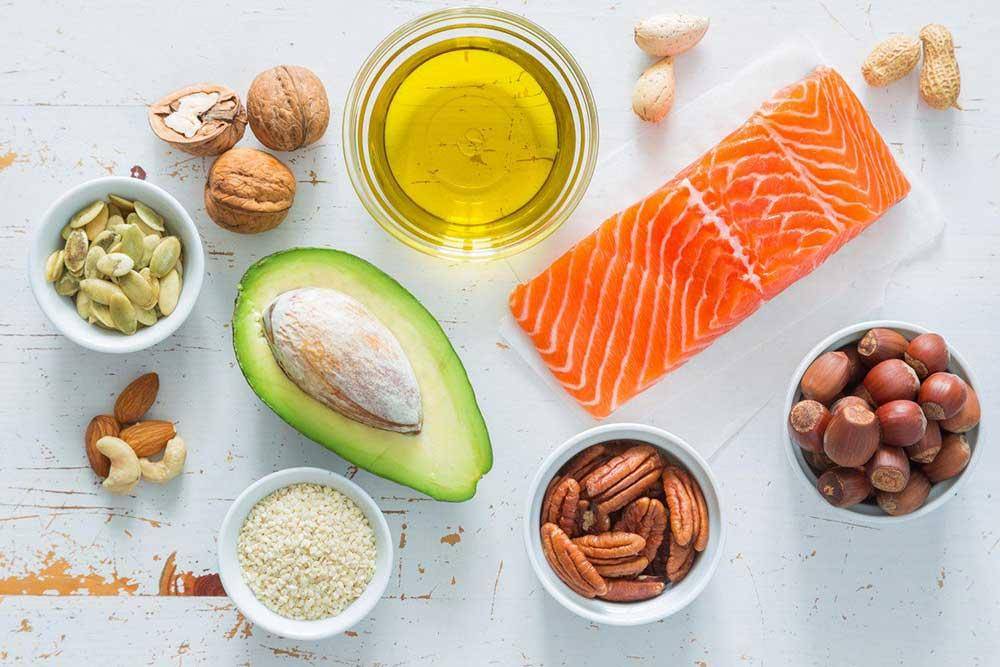
Healthy Fats and Their Role in Skin Health
When it comes to maintaining youthful skin, the inclusion of healthy fats in your diet can make a remarkable difference. These essential nutrients not only nourish your body but also play a significant role in enhancing your skin’s appearance and overall health.Healthy fats help to maintain the skin’s barrier function, ensuring it remains hydrated and resilient against environmental stressors.
Among the most beneficial fats are omega-3 fatty acids, commonly found in fatty fish such as salmon, sardines, and mackerel. Omega-3s are known for their anti-inflammatory properties, helping to reduce redness, irritation, and acne. They also promote skin elasticity, ultimately contributing to a more youthful and plump appearance.By incorporating these fatty fish into your meals, you can boost your skin’s vibrancy.
Another excellent source of healthy fats comes from plant-based oils and nuts. Olive oil, for instance, is rich in antioxidants and fatty acids that can help combat oxidative stress, a key factor in skin aging. Additionally, avocados are packed with beneficial monounsaturated fats, vitamins, and phytochemicals that moisturize the skin from within. Nuts, such as walnuts and almonds, are not only nutrient-dense but also provide essential fatty acids that support skin health and hydration.
To give you a better understanding of the variety of healthy fats you can include in your diet,here’s a concise overview:
| Source of Healthy Fats | Key Benefits |
|---|---|
| Fatty Fish (Salmon,Mackerel) | Rich in Omega-3,reduces inflammation |
| Olive Oil | high in antioxidants,combats oxidative stress |
| Avocados | Moisturizes skin,rich in vitamins |
| Nuts (Walnuts,Almonds) | Supports skin hydration and health |
Moreover,it’s essential to be mindful of the balance of fats consumed. While healthy fats are vital for skin health,excessive intake of saturated fats or trans fats can lead to adverse effects,such as increased breakouts and an aged appearance. By focusing on incorporating a variety of healthy fats in moderation,you create a foundation for radiant and youthful skin while simultaneously enriching your overall health.
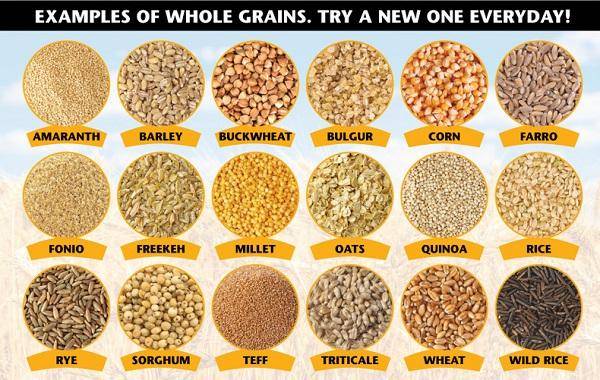
Whole Grains: The Secret to Sustained Energy and Longevity
Whole grains are a powerhouse of nutrition and a key component in the pursuit of sustained energy and longevity. Unlike refined grains, whole grains retain properties that are beneficial for overall health, including essential nutrients and fiber. Incorporating whole grains into your diet can help regulate blood sugar levels, prevent overeating, and support digestive health.
one of the remarkable benefits of whole grains is their high fiber content, which plays a crucial role in promoting gastrointestinal health. Fiber not only aids digestion but also fosters a healthy gut microbiome, vital for nutrient absorption and immune function. This intricate relationship can help reduce the risk of chronic diseases often associated with aging, such as heart disease and diabetes.
Moreover, whole grains are rich in antioxidants and phytonutrients that combat oxidative stress in the body. This oxidative stress is associated with accelerated aging and numerous age-related diseases. By consuming foods like quinoa, brown rice, and barley, you can harness these protective compounds and bolster your body’s defenses against cellular damage.
To make the most of whole grains,consider incorporating them into a balanced diet alongside other nutrient-dense foods.Here are some easy ways to add whole grains to your meals:
- Start your day with a bowl of oatmeal topped with fresh fruits and nuts.
- Swap out white rice for brown rice or farro in your favorite stir-fries.
- Use whole-grain wraps for sandwiches rather of their refined counterparts.
- Experiment with whole-grain pasta for a nutritious twist on customary dishes.
When planning your meals, understanding the glycemic index of certain grains can help make mindful choices that keep your energy levels stable throughout the day.Here’s a simple comparison of some whole grains based on their glycemic index values:
| Whole Grain | Glycemic Index |
|---|---|
| Quinoa | 53 |
| Brown Rice | 50 |
| Barley | 28 |
| Whole Wheat Bread | 69 |
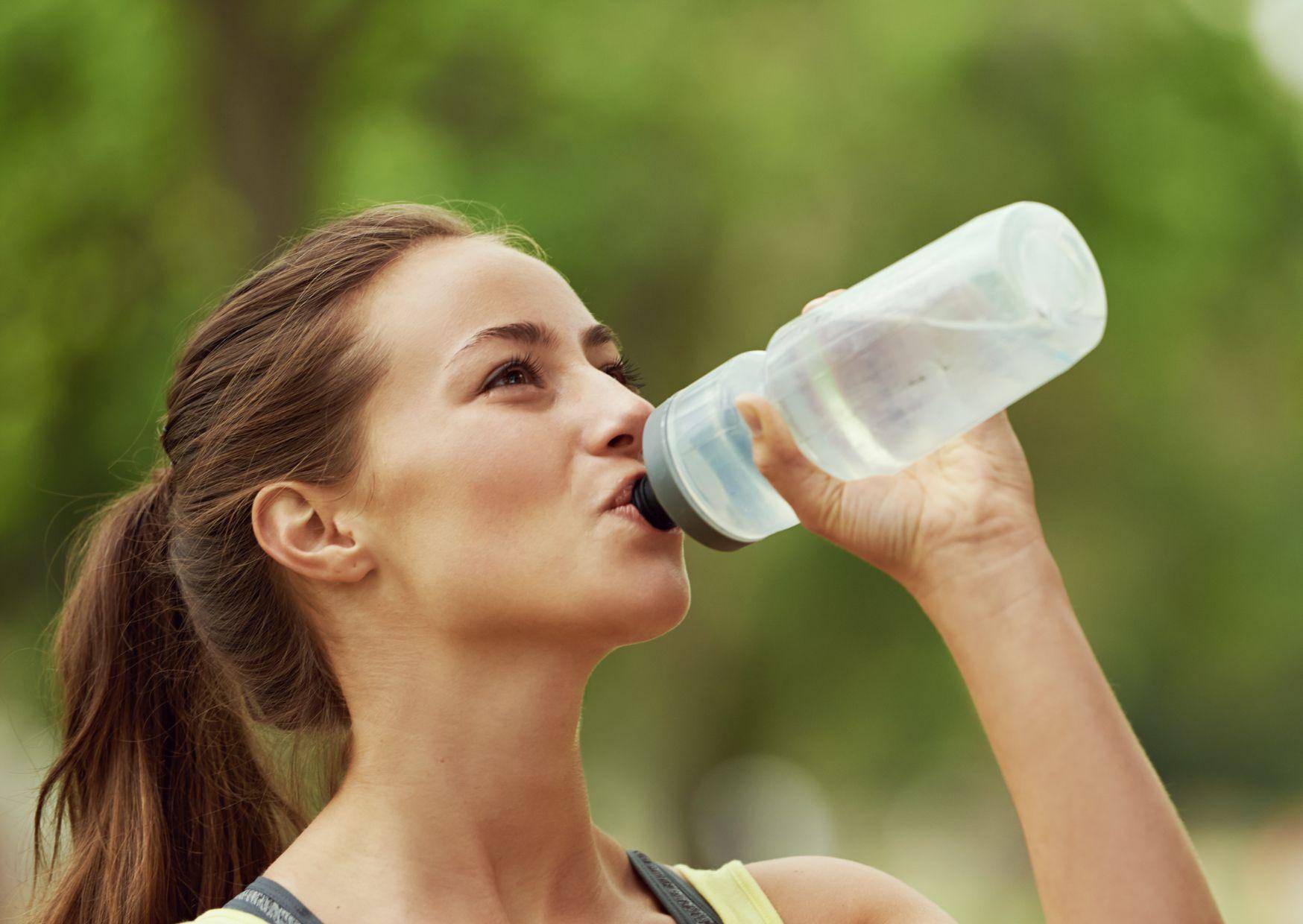
The Importance of Hydration in Anti-Aging Practices
When it comes to maintaining youthful skin and a vibrant appearance, hydration is often the unsung hero. Water is essential for countless bodily functions, and its role in skin health cannot be emphasized enough. Proper hydration helps to keep the skin plump and elastic, minimizing the appearance of fine lines and wrinkles. By ensuring your body receives adequate amounts of water, you promote a natural glow that can reflect overall health and vitality.
Incorporating hydrating foods into your diet can significantly enhance your beauty routine.Fruits and vegetables with high water content not only quench your thirst but also provide essential vitamins and minerals. Some of the best choices include:
- Watermelon – known for its 92% water content and rich in antioxidants.
- cucumber – Provides hydration along with silica, which supports skin elasticity.
- oranges – Packed with vitamin C, they help in the synthesis of collagen, vital for maintaining skin firmness.
Additionally, adequate hydration aids in the detoxification process, flushing out toxins that can accelerate skin aging.When the body is well-hydrated,the kidneys function efficiently,and impurities are expelled more rapidly. This cleansing effect contributes to clearer skin and can definitely help reduce breakouts, giving a smoother complexion. Always remember that the inner workings of your body reflect on the outside.
For optimal hydration, it is indeed recommended to consume at least eight 8-ounce glasses of water a day. Yet, this amount can vary based on individual needs and activity levels. To ensure proper intake, consider the following tips:
- Set reminders to drink water throughout the day.
- Infuse your water with fruit for a flavor boost.
- Keep a reusable water bottle handy to track consumption.
To capitalize on the anti-aging benefits of hydration, consider integrating herbal teas and broths, which can add variety to your hydration routine. Not only do they keep you hydrated, but many of these beverages are rich in antioxidants that combat free radicals—another major player in the aging process. Emphasizing adequate hydration, complemented by nature’s bounty, can significantly aid in preserving youthful skin and overall health.
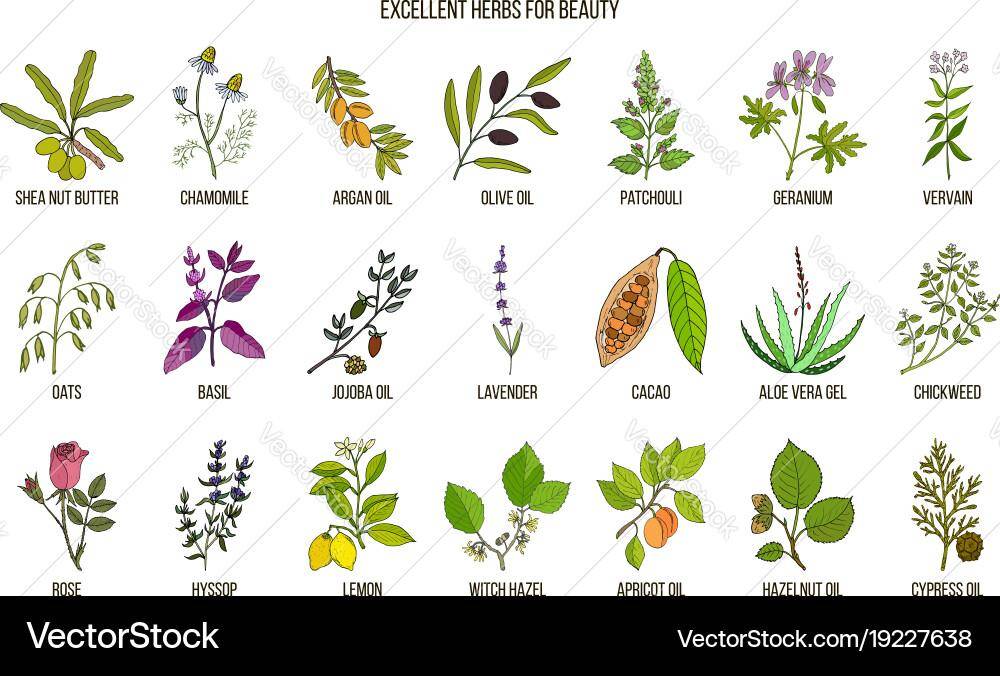
Herbs and Spices That Enhance Beauty from Within
Incorporating certain herbs and spices into your diet can significantly amplify beauty and promote youthful skin from the inside out. These natural wonders are not only flavorful but also packed with antioxidants, vitamins, and minerals essential for skin health. By elevating your meals with these ingredients, you help nourish your body and combat the visible signs of aging.
Turmeric is a golden gem renowned for its anti-inflammatory properties. The active compound curcumin helps to neutralize free radicals, promoting a radiant complexion. It may also improve skin elasticity and tone. Adding a sprinkle of turmeric to soups, smoothies, or even homemade face masks takes advantage of its beauty benefits seamlessly.
Ginger is another powerhouse that aids digestion and enhances circulation, contributing to a natural glow. Its high gingerol content helps reduce blemishes and can rejuvenate tired skin. You can enjoy ginger in your tea, stir-fries, or as a zesty addition to salad dressings.
Next on the list is cinnamon, which not only adds warmth to sweet and savory dishes but also promotes blood flow to the skin. This enhances the delivery of essential nutrients and oxygen to your skin cells. Additionally,cinnamon’s antifungal properties support a healthier complexion. Use cinnamon as a topping for oatmeal or mix it into smoothies for an extra beauty boost.
let’s not overlook the luxurious rosemary. This fragrant herb is rich in antioxidants that combat oxidative stress and preserve skin elasticity. Rosemary can also stimulate hair growth, making it an excellent choice not just for cooking, but for DIY hair treatments as well. Toss fresh rosemary into roasted vegetables or infuse it in oils for culinary delights that your skin will appreciate.
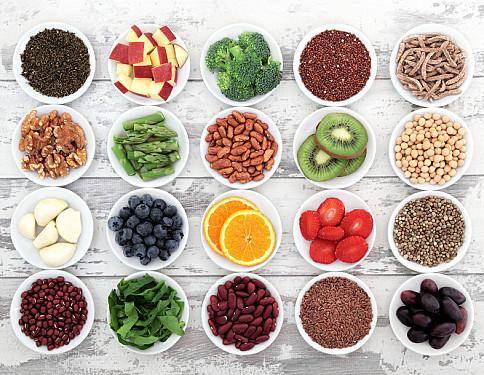
Superfoods: Nutrient-Packed Choices for Skin Rejuvenation
In the quest for youthful skin, the power of superfoods cannot be overstated.These nutrient-rich foods are packed with vitamins, minerals, and antioxidants that promote skin health and rejuvenation. Including them in your diet can significantly affect cell repair and regeneration, leading to a radiant complexion.
One of the most celebrated superfoods for skin rejuvenation is avocado.Rich in healthy fats and vitamins E and C,avocados help to keep your skin moisturized and protected against oxidative stress. The combination of these nutrients enhances collagen production, which is essential for maintaining skin elasticity. Incorporating avocados into salads or smoothies can be an easy and delicious way to boost your skin’s health.
Berries—especially blueberries, strawberries, and acai berries—should also be on your radar. These tiny powerhouses are loaded with antioxidants, particularly anthocyanins, which combat inflammation and protect against sun damage.Enjoying a bowl of mixed berries can not only satisfy your sweet tooth but also provide your skin with the protective benefits it craves.
Have you heard about the wonders of walnuts? These nuts are an excellent source of omega-3 fatty acids, which are renowned for their anti-inflammatory properties. Omega-3s are known to play a significant role in skin health by helping to maintain moisture and preventing dryness. A handful of walnuts as a snack or a crunchy addition to your breakfast can do wonders for your skin.
Lastly, sweet potatoes deserve a spotlight for their skin-enhancing benefits.They are an incredible source of beta-carotene, a precursor to vitamin A, which helps in cell production and turnover. This means brighter, more youthful skin! you can enjoy sweet potatoes baked, mashed, or even as fries, making them a versatile addition to your meals.
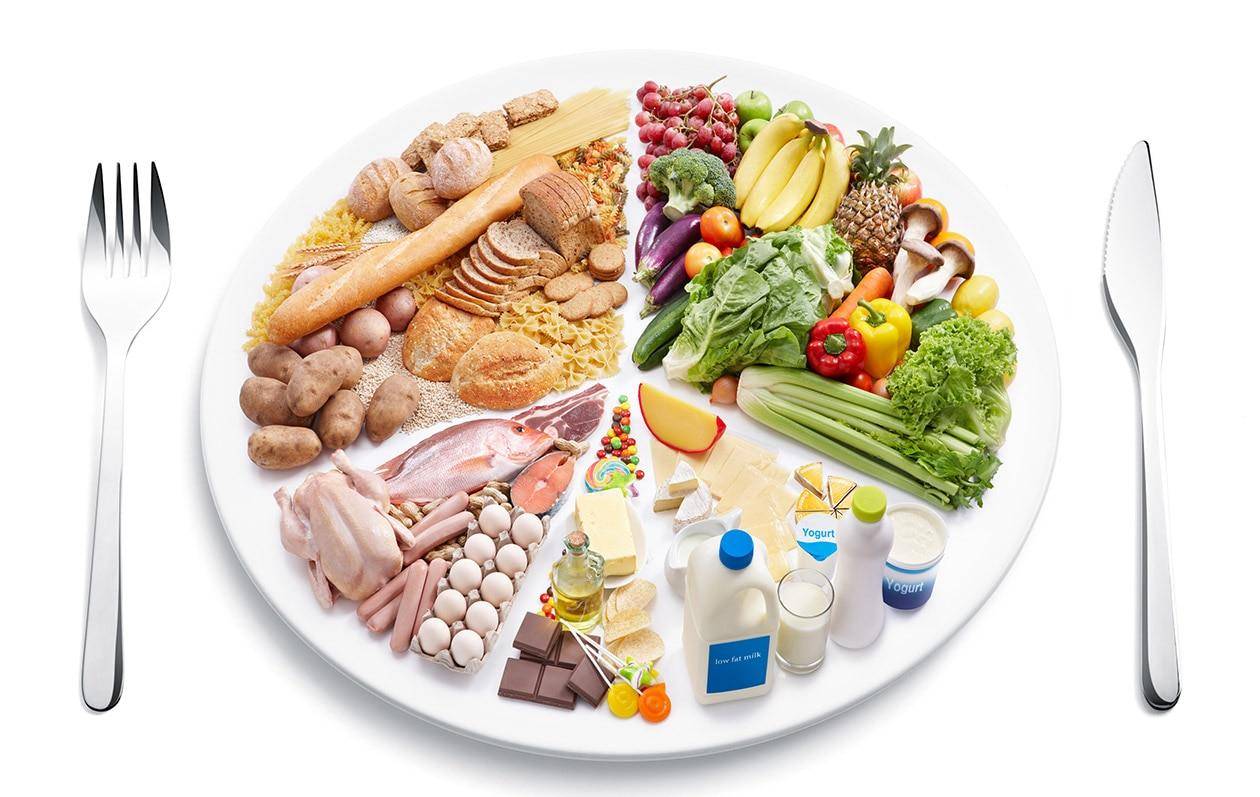
Balanced Diets for a Timeless Glow
To achieve a luminous complexion that defies the passage of time,embracing the power of food is essential. Nutrient-rich choices can work wonders for your skin, enhancing its natural radiance and resilience.Vitamins, minerals, and antioxidants in certain foods actively combat oxidative stress and promote overall skin health. By incorporating a variety of these foods into your diet, you can nourish not only your body but also your skin, ensuring a youthful glow.
One of the most potent anti-aging warriors is berries. Loaded with antioxidants such as vitamin C and flavonoids, berries help to neutralize free radicals that contribute to skin aging. Consider adding a colorful assortment of blueberries, strawberries, and raspberries to your morning smoothie or enjoying them as a fresh snack. Not only do they burst with flavor, but they also provide your skin with the support it needs to stay vibrant and youthful.
Additionally, healthy fats play a critical role in skin maintenance. Fatty fish, like salmon and sardines, are rich in omega-3 fatty acids, which help to keep the skin’s lipid barrier intact. This barrier is crucial for maintaining skin hydration, thus reducing the appearance of fine lines and wrinkles.Try integrating these fish into your weekly meal plan, whether in the form of grilled fillets, fish tacos, or salads topped with smoked salmon.
Don’t underestimate the power of colorful vegetables. Vegetables like spinach, carrots, and bell peppers are packed with vitamins A and E, which are essential for skin repair and renewal. These vitamins help to combat dryness and promote elasticity, giving your skin that desired youthful bounce.Aim to fill half your plate with a variety of these vibrant veggies, whether in salads, stir-fries, or roasted dishes, to maximize your intake of beneficial nutrients.
hydration is key to a glowing complexion. While not a food per se, herbal teas and water-rich fruits like watermelon and cucumber can dramatically enhance your skin’s hydration levels. Consuming these not only replenishes your body but also improves skin texture and reduces puffiness. Hydration should be part of your daily routine, so keep a pitcher of water infused with fresh fruits on hand, or sip on calming herbal teas to boost your beauty from the inside out.
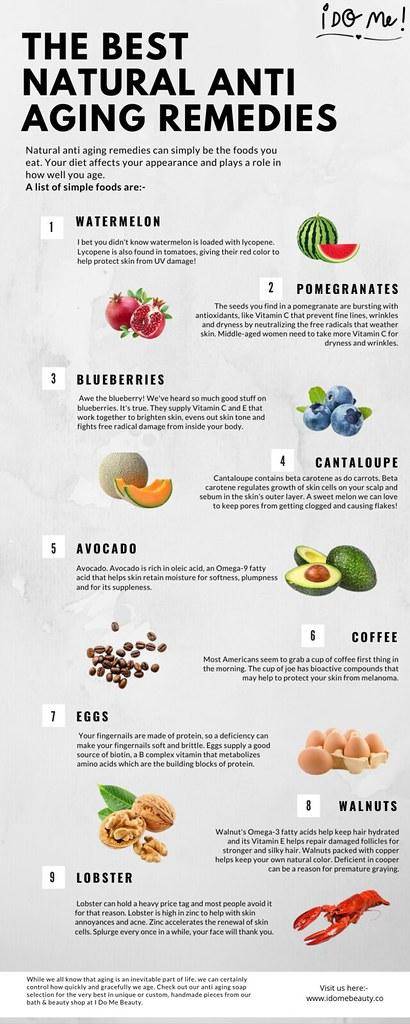
lifestyle Tips to Maximize the Benefits of Anti-Aging Foods
Incorporating anti-aging foods into your diet is just the first step; how you integrate these foods into your lifestyle can significantly enhance their effects. To get the most out of your anti-aging regimen, consider the following tips:
Hydration is crucial when consuming anti-aging foods.Water helps flush out toxins and maintain skin elasticity. Aim for at least 8 glasses of water daily. You can also add antioxidant-rich herbal teas to your hydration routine for an extra boost. Consider options like:
- green tea
- Rooibos tea
- Matcha tea
Mindful eating can maximize the benefits of your meals. Take the time to savor each bite and be present during your meals. This practice not only enhances enjoyment but also aids digestion and nutrient absorption. Create a peaceful eating environment by minimizing distractions, such as electronics, to focus on your food.
Regular exercise complements the intake of anti-aging foods. Physical activity increases blood circulation, allowing the nutrients absorbed from these foods to reach your skin and muscles more effectively. Aim for a balanced routine that includes:
- Cardiovascular exercises (like running or cycling)
- Strength training (using weights or resistance bands)
- Flexibility workouts (such as yoga or Pilates)
Incorporating a variety of colors on your plate can enhance your nutritional intake. Different colors often represent various vitamins and minerals essential for skin health and overall well-being. consider a rainbow of fruits and vegetables such as:
| Color | Food Examples | Key nutrients |
|---|---|---|
| Red | Tomatoes, strawberries | Lycopene, Vitamin C |
| Green | Spinach, avocado | Vitamin K, Antioxidants |
| Yellow/Orange | Carrots, sweet potatoes | Beta-carotene, Vitamin A |
| Purple | Eggplant, blueberries | Anthocyanins, Vitamin C |
Lastly, prioritize quality sleep as part of your anti-aging food strategy.Sleep is the body’s repair time, impacting everything from skin health to hormone regulation. To improve your sleep quality, establish a bedtime routine, reduce screen time before bed, and create a sleep-friendly environment with dim lighting and pleasant bedding.
Q&A
Q&A: What Are the Best Anti-Aging Foods?
Q1: What is the connection between food and aging?
A1: The foods we consume can significantly impact our overall health and how we age. Anti-aging foods often boast high levels of antioxidants, vitamins, and minerals that combat oxidative stress and reduce inflammation—key factors in the aging process. By nourishing our bodies with the right foods, we can enhance cell repair, boost our skin’s elasticity, and maintain vital bodily functions.Q2: Which fruits are considered the best for anti-aging?
A2: Berries, particularly blueberries, strawberries, and blackberries, are at the forefront of anti-aging fruits. They are rich in antioxidants such as anthocyanins, which protect cells from damage. Other excellent choices include oranges, packed with vitamin C for collagen production, and avocados, loaded with healthy fats and vitamins that promote skin hydration.
Q3: Are there specific vegetables that contribute to a younger appearance?
A3: Absolutely! Leafy greens like spinach and kale are powerhouses of vitamins A, C, and K, as well as iron and calcium. cruciferous vegetables like broccoli and Brussels sprouts contain compounds that help detoxify the body and may have anticancer properties. Carrots, rich in beta-carotene, also support skin health by promoting a radiant complexion.
Q4: What role do nuts and seeds play in combating the signs of aging?
A4: Nuts and seeds are incredible sources of healthy fats, protein, and antioxidants. Walnuts and almonds, for example, contain omega-3 fatty acids that are beneficial for brain health and can help reduce inflammation. Chia seeds and flaxseeds are high in fiber and lignans, which may contribute to skin hydration and help maintain youthful vitality.
Q5: Can whole grains have anti-aging effects?
A5: yes, whole grains like quinoa, brown rice, and oats are excellent additions to an anti-aging diet. They are rich in fiber, which promotes digestive health, and packed with nutrients that can stabilize blood sugar levels. This balance is crucial for preventing energy slumps and maintaining a healthy metabolism as we age.
Q6: how about proteins—what should we include in our anti-aging food choices?
A6: Lean proteins such as fish, particularly fatty fish like salmon and sardines, are abundant in omega-3 fatty acids, which have been linked to improved skin elasticity. Plant-based proteins like legumes (beans and lentils) provide essential amino acids while also being rich in antioxidants, making them an excellent choice for overall health and longevity.
Q7: Are there any beverages that can help with anti-aging?
A7: absolutely! Green tea is a favorite among anti-aging advocates, as it is loaded with polyphenols that fight free radicals. herbal teas and freshly squeezed vegetable juices can also help detoxify and nourish the body. Staying hydrated by drinking plenty of water is equally significant for maintaining skin elasticity and overall health.
Q8: How can someone start incorporating these anti-aging foods into their daily diet?
A8: A simple way to begin is by gradually adding more variety to your meals.Start your day with a smoothie packed with berries and spinach, or enjoy a colorful salad for lunch, incorporating a mix of leafy greens, nuts, and a protein source. Experimenting with new recipes and aiming for a rainbow of foods can not only enhance your palate but also ensure you’re getting a wide range of nutrients beneficial for aging gracefully.
Q9: Are there any particular dietary patterns that support anti-aging?
A9: The Mediterranean diet is frequently cited as a beneficial dietary pattern for aging. It emphasizes whole,unprocessed foods—fruits,vegetables,whole grains,fish,and healthy fats—while limiting red meat and sugar. Adopting a balanced and varied diet like this can help you feel vibrant and youthful, both inside and out.
Q10: Lastly, is there a fast summary of the top anti-aging foods?
A10: Certainly! To support an anti-aging lifestyle, focus on incorporating berries, leafy greens, nuts, seeds, lean proteins, whole grains, and antioxidant-rich beverages like green tea. By integrating these foods into your daily routine, you can create a nourishing diet that promotes longevity and vitality.
Closing Remarks
As we navigate the intricate relationship between our diets and the passage of time, it’s clear that the choices we make today can echo through our tomorrows. by incorporating nutrient-rich, anti-aging foods into our meals, we not only nourish our bodies but also empower ourselves to embrace healthier, more vibrant lives. Remember,the journey to youthful vitality is not solely about appearance—it’s about cultivating wellness from the inside out. As you explore new culinary adventures,consider these foods your trusty allies in the quest for longevity and vitality. So, whether you’re savoring a ripe avocado, crunching on berries, or delighting in a bowl of greens, know that each bite is a step toward a brighter, more luminous you. Here’s to eating well and aging gracefully!
